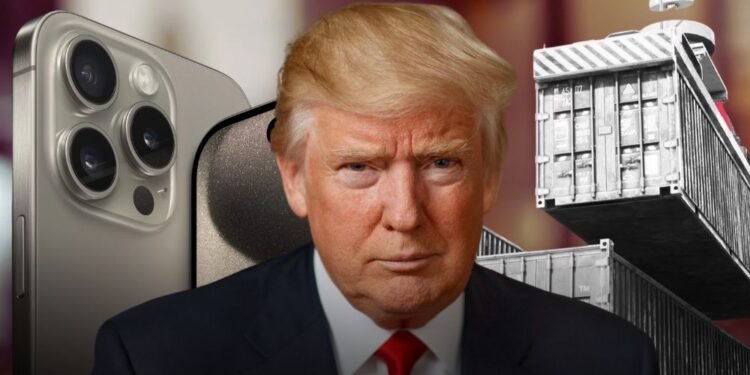President Donald Trump announced a 25% tariff on Apple iPhones not manufactured in the U.S., intensifying pressure on the tech giant to shift production from China and India.
The policy, set to take effect by late June, also targets other smartphone makers like Samsung, aiming to bolster American manufacturing and jobs. The move has sparked debate about its feasibility and economic impact, with Apple’s stock dropping $70 billion in market value overnight.
Currently, over 90% of iPhones are assembled in China, with 10–15% in India, where Foxconn, Apple’s main supplier, has invested $1.5 billion to expand production.
Trump’s push for U.S.-based manufacturing follows earlier exemptions in April 2025 that spared smartphones temporarily. Analysts, however, doubt a quick shift is possible.
Building U.S. factories, training workers, and securing supply chains could take years, and a fully U.S.-made iPhone might cost $1,500–$3,500, far above the current $1,199 for an iPhone 16 Pro Max.
The tariff could raise prices globally, with estimates suggesting a 17–30% hike for consumers. Apple, which relies on intricate global supply chains, faces a dilemma: absorb costs and cut margins or pass them on, risking demand.
The policy also reignites broader trade tensions, as China and India brace for potential economic ripple effects.
While Trump touts job creation, critics warn of higher costs and supply chain disruptions. For now, Apple has not commented publicly, leaving consumers and investors watching closely as the deadline looms.












